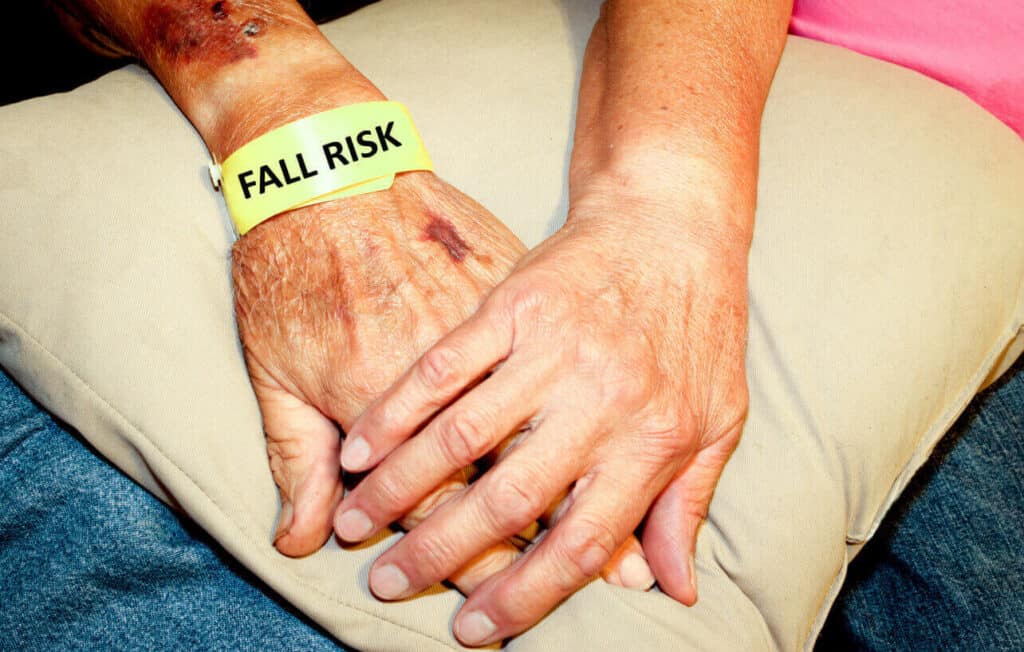
Overmedication is a growing concern in the elderly population, with serious implications for their health and well-being. According to AcademyHealth, 750 elderly people are hospitalized every day because of serious drug interactions.
https://academyhealth.org/blog/2020-01/how-clinicians-patients-and-policymakers-can-rreduce-harmful-overmedication-older-Americans
Many of these emergency experiences could have been prevented with a little understanding of how to manage prescription and over-the-counter medications. Many elderly individuals are prescribed multiple medications to treat various chronic conditions. Such as
- High Blood Pressure
- Arthritis
- Diabetes
- Chronic Pain
- Restless Sleep
- Anxiety
Multiple prescriptions from different doctors can lead to polypharmacy, or the use of several medications, that may interact with one another. This can result in adverse reactions such as falls, delirium, cognitive impairment, and other serious health complications.
Many times, the elderly are prescribed medications that may not be effective or safe for their specific medical history, leading to negative side effects and complications.
The impact of overmedication on the elderly is significant, both in terms of quality of life and healthcare costs. Caregivers and healthcare providers need to make overmedication a critical priority while considering the risks and benefits of every medication prescribed to an elderly person. Here are three simple strategies that can put you in the know about handling your loved one’s medications.
RECOGNIZING THE REASONS of Overmedication in the Elderly
Multiple Chronic Conditions
As your loved ones age, their bodies move slower, ache more, and are at risk for developing chronic health issues. We call these age-related physiological changes. Your loved ones seem to need to visit the doctor more. Each new or regular health issue can require a different medical specialist.
Arthritis, Osteoporosis, Chronic Pain, Diabetes, Dementia, and Heart Disease are just a few of the common health issues elderly people struggle with.
Each new health challenge can add another doctor to the list; Chronic Pain Management, Primary Care Physician, endocrinologist, rheumatologist, and nephrologist, just to mention a few. More than one doctor prescribing different medications is a recipe for potential problems.
Prescription Errors and Miscommunication
Medication mistakes can happen at any step of the prescription process, from initial ordering to dispensing and administration of the drug. Miscommunication between healthcare providers, patients, and pharmacists can lead to
- Incorrect Dosage
- Incorrect Medications
- Adverse and Harmful Reactions
Careful and improved communication between caregivers, doctors, and pharmacists can greatly minimize this risk while still maintaining respect and the privacy rights of a patient.
Polypharmacy
This sounds complicated. But polypharmacy simply means a patient uses multiple medications. The problem isn’t someone needing more than one drug for different health issues. The problem happens when multiple drugs are given without considering possible side effects and interactions of those drugs. More medication doesn’t always help someone feel better.

UNDERSTANDING RISKS and Consequences of Overmedication
Increased Risk of Falls and Injuries
According to the National Library of Medicine, https://www.ncbi.nlm.nih.gov/pmc/articles/PMC4125318/ some drugs that are regularly prescribed to elderly people can increase their likelihood of a fall. Falling is the leading cause of injury in America’s elderly population. Overmedication can lead to increased medical expenses and even death due to an untimely fall. A few drugs that have been shown to increase the risk of a fall are:
- Diuretics
- Beta-blockers
- Antidepressants
- Nonsteriod Anti-inflammatories
- Sedatives
Always check with the prescribing doctor if a suggested medication will increase the chances of falling.
Cognitive Impairment and Delirium
Many seniors may have difficulty managing their medication regimen, leading them to skip doses or take incorrect doses.
Elderly people who already experience age-related memory loss are particularly vulnerable to adverse reactions to overmedication. Age-related declines in memory and brain function can be adversely affected by beta-blockers, statins, and some narcotic painkillers. It is important to ask about specific side effects of any medication a doctor is suggesting your loved one take.
Overmedication can lead to increased mental and memory problems adding to existing confusion, memory loss, dizziness, and impaired judgment.
With an increased risk of falling or added memory loss issues, elderly people who are overmedicated suffer from higher rates of hospitalization. Adverse drug interactions cause severe health risks along with higher mortality rates for our elderly loved ones.

CREATING STRATEGIES to Prevent Overmedication in your Elderly Care
Once you are aware of the potential of overmedication and the damage it causes to elderly people, you can make a plan and add some strategies to your elderly care toolbox. Prevention is the best medicine to prevent your loved one from becoming a victim of overmedication.
Firstly, care coordination and team-based care between healthcare providers and daily caregivers monitor elderly patients for adverse drug reactions.
Coordinated care starts with improved communication. Tell your primary care physician if another doctor is suggesting a new medication. Always have a list of medicines that are already prescribed for your loved one with you when they go to any doctor’s visit. Keep records of new behaviors your loved one shows after taking a drug.
Regular check-ups and lab work can give information about what medications are working or overmedicated. Home testing, such as blood sugar level tests, can also give needed information on how a medication is working.
Secondly, any healthcare professional should regularly review and adjust the medication regimen of elderly patients.
Reviews can identify unnecessary medications and deprescribe these drugs. Then aim to reduce the dosages of the medications that are needed. Prescribers should avoid giving drugs such as sedatives and anticholinergics that are known to cause drug reactions in the elderly.
Thirdly, patient and caregiver education is empowering and reduces the risk of overmedication. No one likes homework, but a little research into a health issue before you just give another pill can turn up some nonmedical remedies. There are many non-pharmacological treatments for managing medical conditions in the elderly. You may be able to avoid giving another pill completely. Studies have shown the positive impact on health that comes from healthy eating, exercise, and social engagement.
When a medication is necessary, a quick Google search helps you find out the risks, reactions, and important facts about that drug. A few good questions can determine if taking a specific medication is necessary or appropriate for your loved one’s quality of life and long-term health goals.
Preventing overmedication in the elderly requires a multifaceted approach involving reviewing, monitoring, and holistic approaches. Implementing a sound strategy ensures elderly patients have the appropriate medications given in safe amounts.
To improve the safety and effectiveness of treatment, it is important for healthcare professionals to carefully diagnose medical conditions and provide effective therapy with the appropriate doses of medications.

Finding a Trusted Source for Help with Information is Important
The Agency for Healthcare Research and Quality is an organization dedicated to improving the safety and efficacy of treatment for the elderly through additional training and education for healthcare professionals.
They provide a wide range of resources on their website, including links to current news and events. Additionally, the website offers a menu of topics that can be used to improve diagnosis and therapy for the elderly.
To further share its message, the organization also has social media pages on platforms such as Twitter, Facebook, and YouTube. Overall, seniors need to follow a treatment plan that is safe and effective, and for healthcare providers to be well-informed and trained on the latest research and products in the field of elderly care.
Conclusion
Now you recognize the reasons, know the risks, and have a plan in place. You’re on your way to preventing your loved one from suffering the effects of overmedication. We put so much trust in modern medicine and technology; we hope our doctors can give us needed medical relief. But the most important advocate in the care of your loved one is YOU.
Amy’s Eden is your perfect partner in caring for your elderly loved one. We understand the importance of teamwork when it comes to caring for your family. Working together with family, healthcare providers, and your loved one is the powerhouse team in defense against overmedication in the elderly. We promise to support you in your efforts to care for the people you love.
Please be aware that laws regulating the administration of medication differ throughout the United States. Call Amy’s Eden today for more information about the laws in the state of Nevada regarding caregivers and the administration of medications. We are committed to giving the best care to our residents.




